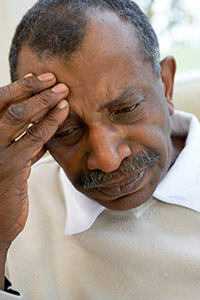Learn the Signs and Symptoms of TB Disease
 Tuberculosis (TB) is a disease caused by bacteria that are spread through the air from person to person. If not treated properly, TB disease can be fatal. Learn to recognize the signs and symptoms of TB.
Tuberculosis (TB) is a disease caused by bacteria that are spread through the air from person to person. If not treated properly, TB disease can be fatal. Learn to recognize the signs and symptoms of TB.
Tuberculosis (TB) is a disease caused by bacteria that are spread through the air from person to person. The TB bacteria are put into the air when a person with TB disease of the lungs or throat coughs, sneezes, speaks, or sings. People nearby may breathe in these bacteria and become infected. The TB bacteria usually attack the lungs, but can attack any part of the body such as the kidney, spine, and brain. If not treated properly, TB disease can be fatal.
TB is NOT spread by
- Shaking someone’s hand
- Sharing food or drink
- Touching bed linens or toilet seats
- Sharing toothbrushes
- Kissing
Latent TB Infection and TB Disease
Not everyone infected with TB bacteria becomes sick with TB disease. People who become infected, but are not sick have what is called latent TB infection. People who have latent TB infection do not feel sick, do not have any symptoms, and cannot spread TB bacteria to others. But some people with latent TB infection go on to get TB disease. People who have TB disease do feel sick, have signs and symptoms, and may spread TB bacteria to others.
Symptoms of TB Disease
 Symptoms of TB disease depend on where in the body the TB bacteria are growing. TB disease symptoms may include:
Symptoms of TB disease depend on where in the body the TB bacteria are growing. TB disease symptoms may include:
- A bad cough that lasts 3 weeks or longer
- Pain in the chest
- Coughing up blood or sputum (phlegm from deep inside the lungs)
- Weakness or fatigue
- Weight loss
- No appetite
- Chills
- Fever
- Sweating at night
If you think you may have been exposed to someone with TB disease, contact your health care provider or your local or state TB control office.
TB Risk Factors
Not all people need a TB test. You should get a TB test if you are at increased risk. Generally people at high risk for developing TB disease fall into two categories:
- People who have been recently infected with TB bacteria
- People with medical conditions that weaken the immune system
Conditions or activities that place you at increased risk: 
- You have spent time with a person known to have TB disease or suspected to have TB disease
- You have HIV infection or another condition that puts you at high risk for TB disease
- You have signs and symptoms of TB disease
- You are from a country where TB disease is very common
- You live or work where TB disease is more common, such as a homeless shelter, migrant farm camp, prison or jail, and some nursing homes
- You use illegal drugs
While anyone can get TB disease, some people who are infected with TB bacteria are more likely to get sick.
You have a higher chance of getting TB disease if you
- Have HIV infection
- Have been infected with TB bacteria in the last two years
- Have other health problems that make it hard for your body to fight disease
- Abuse alcohol or use illegal drugs
- Were not treated correctly for TB infection or TB disease in the past
More Information
Get email updates
To receive email updates about this page, enter your email address:
Contact Us:
- Centers for Disease Control and Prevention
1600 Clifton Rd
Atlanta, GA 30333 - 800-CDC-INFO
(800-232-4636)
TTY: (888) 232-6348 - cdcinfo@cdc.gov



